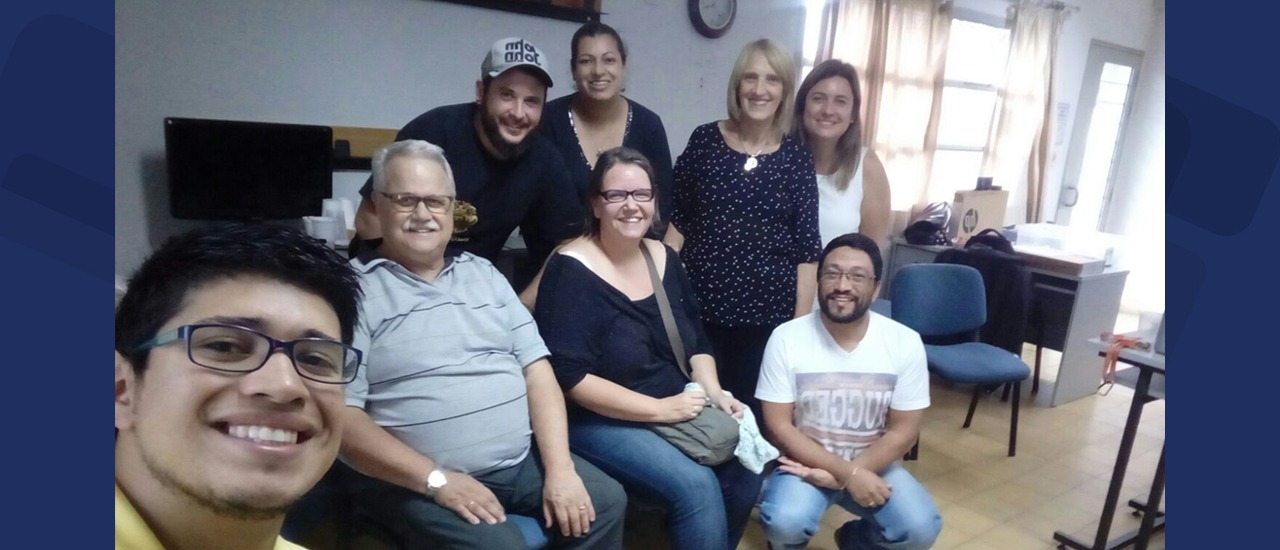Current researches show that children are exposed to both increased risks and increased opportunities when accessing the Internet and using apps and social media. The UNICEF’s “Children in a Digital World” 2017 report takes a comprehensive look at the different ways digital technology affects children. It is critical that children have necessary training in digital literacy to acquire the skills to minimize risks and to confidently navigate the web to maximize their opportunities. Evidence suggests that technology has benefits where positive human forces for learning are already in place.
The Internet Society Uruguay Chapter, in partnership with the The University of the Republic and the Consejo de Formación en Educación and financial support of the Beyond the Net Funding Programme has taken significant steps to help children and teenagers to develop digital skills in a creative and innovative way in three of the nineteen segments in which Uruguay is politically divided, Paysandú, Rivera, and Salto. Their project Flor de Ceibo Conecta2 aims to train young people from disadvantaged communities using digital resources in creative and challenging learning classes to help them improve their everyday lives and expand their chances for a better future.
 María Julia Morales González, project manager and professor at the Department of Sociology and Interdisciplinary Space of the University of the Republic, reveals the motivations that led to start this project: “Since 2008 we have been working on the issue of social appropriation of ICT by citizens. Our previous project, Flor de Ceibo, started in 2008 as an initiative of faculty members from the University of the Republic. While exploring the reasons behind the violation of freedom and rights of citizens in our country, we started to rethink the strategies that promote the responsible use of ICTs. We are convicted that the digital divide can be reduced with actions that facilitate the social appropriation of technologies and the development of digital skills. That’s why we decided to work with disadvantaged communities that are generally characterized by multiple negative outcomes.”
María Julia Morales González, project manager and professor at the Department of Sociology and Interdisciplinary Space of the University of the Republic, reveals the motivations that led to start this project: “Since 2008 we have been working on the issue of social appropriation of ICT by citizens. Our previous project, Flor de Ceibo, started in 2008 as an initiative of faculty members from the University of the Republic. While exploring the reasons behind the violation of freedom and rights of citizens in our country, we started to rethink the strategies that promote the responsible use of ICTs. We are convicted that the digital divide can be reduced with actions that facilitate the social appropriation of technologies and the development of digital skills. That’s why we decided to work with disadvantaged communities that are generally characterized by multiple negative outcomes.”
How your community will benefit from this project?
Flor de Ceibo project ended in February 2017 and only because of the financial support received by the Internet Society Beyond the Net Funding Programme was possible to continue with a new one called Flor de Ceibo Conecta2 . We will continue to work on our goals, incorporating civil society in the process. The project aims to empower children and adolescents in the meaningful use of ICT, fostering the use of ICT for citizen participation, access to education, exercise of freedom, and the defense of their rights. Uruguay government has taken significant steps to narrow the access and connectivity gap with actions and public policies directly addressing this areas. But according to academic studies, the historically disadvantaged departments in the north of the country are less developed due to the lack of undertakings that create employment for the population. It is expected that during the development of this project these populations will acquire the skills to empower themselves on the use of ICTs to be self advocates of their knowledge and thereby enhance citizen participation in a country where infrastructure is almost universally given.
What are you are working on at the moment?
During the first year, we worked with 4 and 5-year old boys and girls on the subject of healthy eating and with adolescents on citizen participation and cybersecurity topics. At the beginning of 2018, we started collaborating with territorial actors and institutions. We actually have six teachers from two institutions, the Education Training Council, and the University of the Republic, which intervene in formal and informal education across different disciplines.
We work with a participatory methodology in three phases:
a) diagnosis and construction of demand
b) intervention in territory
c) evaluation
These phases are not linear and overlap on occasions, as well as sometimes we need to adjust them depending on different territories and realities. The evaluation is continuous in order to adjust the interventions.
Read the Flor de Ceibo Connecta2 Project Blog and follow Beyond the Net on Twitter!

